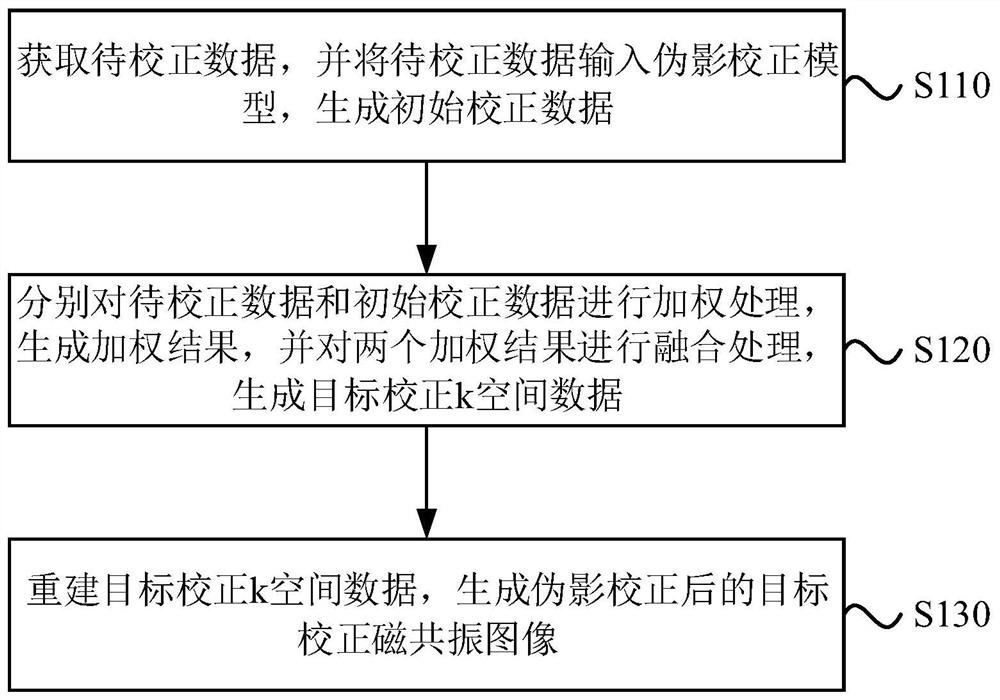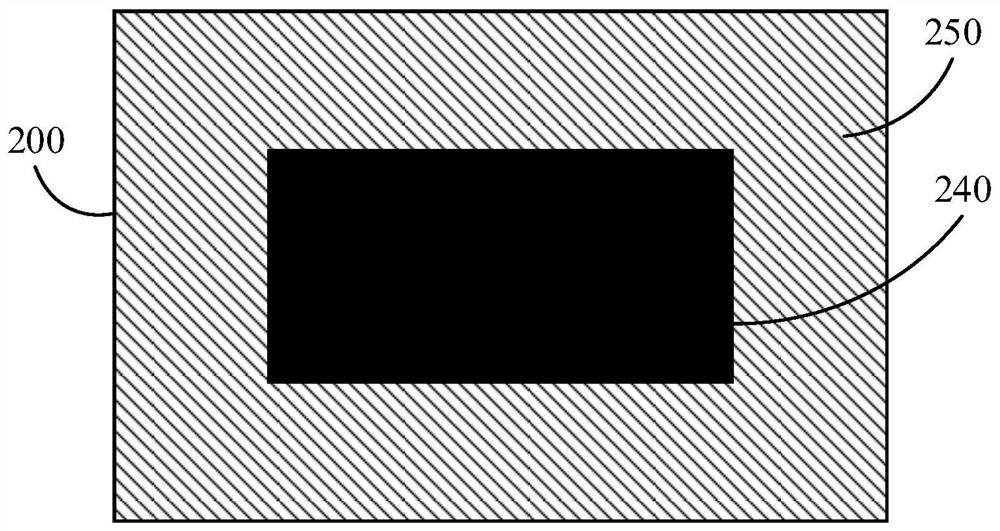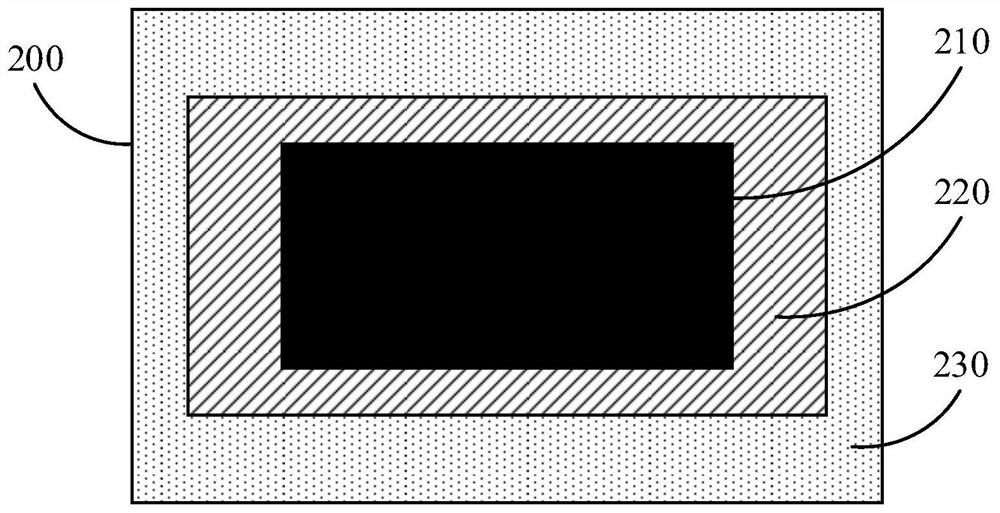Magnetic resonance image processing method, device, storage medium and magnetic resonance imaging system
A magnetic resonance image and processing method technology, applied in the field of medical image processing, can solve the problems of difficult control of constraints, unnatural details of magnetic resonance images, poor mosaic effect suppression effect, etc., and achieves improved suppression degree and artifact correction. good effect
- Summary
- Abstract
- Description
- Claims
- Application Information
AI Technical Summary
Problems solved by technology
Method used
Image
Examples
Embodiment 1
[0030] During the magnetic resonance imaging process, due to the lack of high-frequency components in the k-space, serious Gibbs artifacts will occur in the final image. The magnetic resonance image processing method provided in this embodiment can be applied to the artificial Shadow correction, especially suitable for reducing Gibbs artifacts or truncation artifacts in magnetic resonance images. The method may be performed by a magnetic resonance image processing apparatus, which may be implemented in software and / or hardware, and the apparatus may be integrated in a device with image processing functions, such as a notebook computer, a desktop computer, or a server. see figure 1 , the method of this embodiment specifically includes the following steps:
[0031] S110: Acquire data to be corrected, and input the data to be corrected into an artifact correction model to generate initial correction data.
[0032] The collection of the data to be corrected may be unidirectional...
Embodiment 2
[0049] In this embodiment, on the basis of the above-mentioned embodiment, "generate the first weight matrix and the second weight matrix according to the preset weight value distribution rule" is added. On this basis, it is possible to further optimize the "weighting processing of the data to be corrected and the initial correction data to generate a weighted result". The explanations of terms that are the same as or corresponding to the above embodiments are not repeated here. see Figure 3A , the magnetic resonance image processing method provided by this embodiment includes:
[0050] S210: Acquire data to be corrected, and input the data to be corrected into an artifact correction model to generate initial correction data.
[0051] like Figure 3B is a schematic diagram of an exemplary artifact correction model described according to some embodiments of the present application. The artifact correction model may employ a neural network model, which may include an input ...
Embodiment 3
[0074] This embodiment provides a magnetic resonance image processing device, see Figure 4 , the device specifically includes:
[0075] The initial correction data generation module 410 is used to obtain the data to be corrected, and input the data to be corrected into the artifact correction model to generate initial correction data, wherein the artifact correction model is obtained by pre-training based on the neural network model, and the k corresponding to the initial correction data is obtained. The space includes more high-frequency components than the k-space corresponding to the data to be corrected;
[0076] The weighted fusion module 420 is used to perform weighting processing on the data to be corrected and the initial correction data, respectively, to generate a weighted result, and perform fusion processing on the two weighted results to generate target corrected k-space data;
[0077] The reconstruction module 430 is used for reconstructing the target-corrected...
PUM
 Login to View More
Login to View More Abstract
Description
Claims
Application Information
 Login to View More
Login to View More - R&D
- Intellectual Property
- Life Sciences
- Materials
- Tech Scout
- Unparalleled Data Quality
- Higher Quality Content
- 60% Fewer Hallucinations
Browse by: Latest US Patents, China's latest patents, Technical Efficacy Thesaurus, Application Domain, Technology Topic, Popular Technical Reports.
© 2025 PatSnap. All rights reserved.Legal|Privacy policy|Modern Slavery Act Transparency Statement|Sitemap|About US| Contact US: help@patsnap.com



